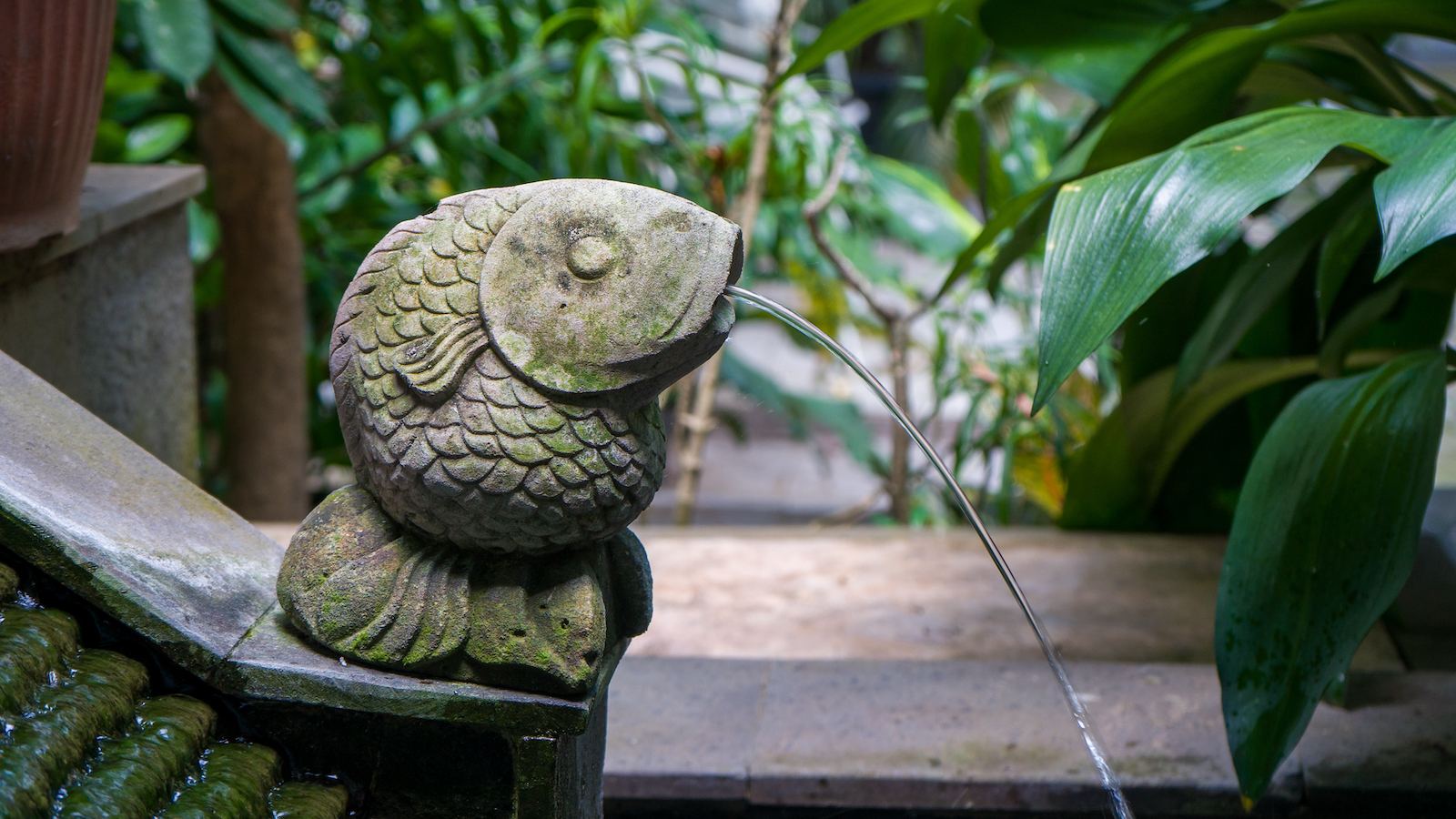Call Us On
03 7046 5568
Mon-Fri 9AM-5PM

If you're unfamiliar with water pumps, we recommend you first read our guide on how water features work.
To choose a pump for your water feature, we take the specifications of the original pump supplied and find a similar one of another brand with similar specifications.
The three essential attributes to look for are:
Will the fountain's existing tube fit into the new water pump? You will need to measure your tube size.
Note that two water pumps can have the same "flow rate". However, at a distance of 1m, as the flow rate weakens, one pump can have double the flow rate of the other. So you'll need to know the flow rate of your old pump at a distance from the reservoir to spout and compare that with the new pump in question. The flow rate of the new pump can be more powerful if it has a flow adjuster to minimise the flow.
You can use the max head as a guide for the strength of the pump.

Let's use the Carmen fountain as our example. The Carmen comes with a water pump that has the following specifications:
We wish to replace the original pump supplied with the Carmen with one from Reefe. By looking at any Reefe pump at the bottom, we see a table of the specs:

We see that RP610 and RP900 are both suitable. If you want to be sure the water pump has sufficient power, go one step higher. That is, choose the pump with a flow rate one degree higher that is also flow-adjustable so you can minimise the flow rate when needed.
It's essential to take note of the flow rate at the flow distance. First, estimate the flow distance using the dimensions of the water feature. The Carmen is 60cm, and the flow distance is approximately 90% of that, which is 54cm. We highlighted the flow rate of the replacement Reefe pump at about 54cm in the above table.
Suppose you know the flow rate of the flow distance for the original pump. In that case, you can obtain a more accurate comparison and measure. A rough estimate using flow rate and max head is usually sufficient.
Why not get the most powerful water pump possible?
There are three reasons:
The water pump's dimensions are vital if the pump housing has limited room. Some water fountains may have only a tiny cavity to put the pump, rather than a pump housing or a large bowl. However, in our example, the pump sits within the entire reservoir, so there's ample room. Therefore, the size of the pump is less critical.
We use the same process as above to choose a solar pump for a water fountain that originally included an electric pump.
The higher the flow rate of an electric pump, the more power it will use. Thus, an equivalent solar water pump would need a much larger solar panel to operate the pump. Therefore the more powerful the electric pump is to be replaced with solar, the more expensive it will be.